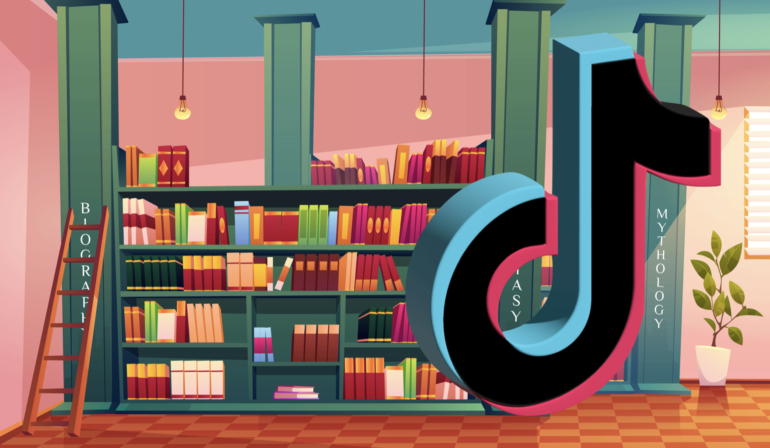This summer, my book-hating niece and I were driving down the highway, and I asked if she had picked any books up lately.
“Not really, but my friends are reading Colleen Hoover so I think I’m going to try one of her books,” she said.
I screamed internally (and externally), cringing as I tried to explain that Colleen Hoover was not real literature. On top of that, my 14-year-old niece should not be reading books that glorify toxic relationships, depict weak women and are filled with smut. Yet, there we were, and she didn’t understand what I was trying to argue. To her, it was another easy-to-read book that her friends were reading with a spicy plotline.
Hoover’s books gained popularity on #BookTok, a corner of TikTok that has been around since the initial COVID-19 quarantine, which has been a switch from book influencers on YouTube or Instagram who have been around for years. BookTok feels different. It doesn’t have the heart that YouTube book influencers have or the depth of an Instagram description that someone took the time to carefully provide their readers with. To me, it’s the beginning of the fall of literature and its market.
A North American survey on TikTok users from May of 2023 found that 48% of users are reading more because of BookTok. That’s no surprise — Tiktok has already taken social media by storm. In a way, I’m glad that the numbers are rising, but I can’t help but wish it was any other way. Hoover is a smart businesswoman; she knows how to market her books. That just so happens to succeed on TikTok. The majority of books that are highlighted on BookTok are reduced to their cover and a quick descriptor, like “easy read & well written,” a trope like “friends to lovers” or, my personal favorite, “chef’s kiss.” What does it mean for literature if we aren’t even willing to write out or hear the full synopsis? On YouTube, the 12- to 35-minute videos have a good, sometimes a bit long-winded, length. BookTok’s too-short descriptions just don’t give enough to make any point about the book—synopsis or otherwise. Like our attention spans, reading is fading into the dreaded pot of instant gratification, warping our minds and keeping thoughts shallow.
I think a lot of this stems from modern-day romance novels, not just BookTok. We may have easier access to the titles and find out about them via social media, but think about the bookstores and Amazon suggestions that scream at us to pick up a romance novel. I will be the first to admit that I love a quick little romance novel every now and then; they’re good for a day at the beach or, for me, an in-between-other-books kind of read. My Goodreads this summer was nearly half romance books, which I have no regrets about. But it does beg the question, what is literature? And, possibly even a harder question: are there some books that cannot even claim the term literature? Wait, one more: is this new generation of romance books redefining it?
In one of my classes, we’ve dissected what literature can actually be defined as. It’s something that enchants us, allows us to escape. We read it to learn about life and the way it works. It’s filled with human expectations, to provoke us and is typically thought to have a moral of some kind. There is no one solid definition, though it feels like many of us just know when something is or is not literature. While Hoover’s books check the boxes of life lessons, escapism, expectations and sometimes even a clear moral, it doesn’t feel like real literature.
In Hoover’s rise in popularity, different outlets and sources have tried to look at what makes her or her books so special. In 2022, Hoover won six of ten spots on NBD BookScan’s 2022 top bestsellers. Not all of these consumers and readers are middle-aged people who are looking into different corners of the romance genre. Some are like my niece and trying to get into reading. This new generation of readers is not reading real literature, though. It feels like reading Hoover’s books or other similar ones might just be another form of brain rot, parading as informing readers or promoting growth. In a way, that is worse than just books that are either poorly written or possess bad themes. It gives the impression of real literature, with none of the character-building or mind-expanding qualities it should have.
I’m not saying we should censor these books or exclude them from the general conversation about books. But next time you scroll through TikTok and see a book influencer reduce a romance book to a trope or use the word “steamy,” proceed with caution if you pick it up. It’s easy to fall into a hole of quick, easy romance books, but I would recommend taking it with a grain of salt. Read one, then move on to a book that demands more of you. I love a good, mindless read, but if we read too many, we risk saying goodbye to the beauty of thought-provoking literature.




